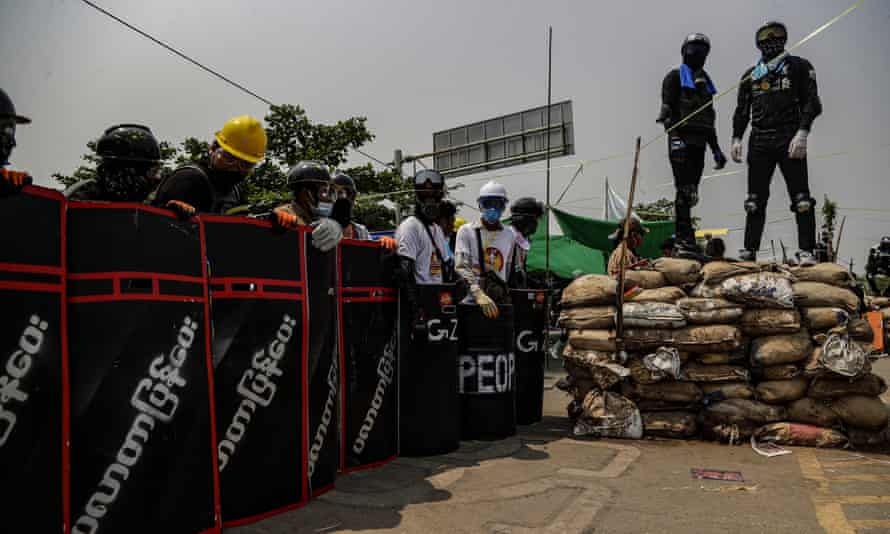COVID and economy woes walloped Puerto Rico — but statehood may help bring it back
Reggie Wade
·Writer
Sat, March 13, 2021
Puerto Rico — buffeted by natural disasters, a debt crisis and most recently, COVID-19 — is struggling under the weight of a hobbled economy that relies heavily on tourism.
However, the so-called “Island of Enchantment” may yet see better days, as the Biden administration, and a chance to become fully recognized as a U.S. state, could help restore a much-needed sense of normalcy after a rough stretch of years.
In the U.S. Congress, where Democrats currently hold a slim majority, key lawmakers are united in their desire to bolster Puerto Rico’s future — but exactly how that gets done is up for debate. One option currently being discussed with more intensity is a bid for statehood, an option that some have floated for Washington, D.C. as well.
Last year, New York Democrats Nydia Velázquez and Alexandria Ocasio-Cortez spearheaded an effort to advance the island's bid to determine its future. In a November referendum, Puerto Ricans voted to become a U.S. state, the latest in a years-long effort to clarify the island’s relationship with America.
Earlier this month, Puerto Rico’s sole representative in Congress, González Colón (R-PR) and Congressman Darren Soto (D-FL 9) introduced the Puerto Rico Statehood Admission Act, which would pave the way to make Puerto Rico the 51st state.
To be certain, Puerto Rico’s economy wasn’t always defined by crisis. For decades, U.S. tax incentives made the island a draw for subsidiaries of most U.S. companies that operated within its borders, turning into a manufacturing hub for big pharmaceutical companies like Johnson & Johnson (JNJ), Roche (RHHBY), Pfizer (PFE), and Novartis (NVS).
However, legislation passed in 1996 phased out those incentives within a decade, hastening a decline that made the economy far more reliant on tourism.
Edwin Melendez, director of the Center for Puerto Rican Studies and a professor of urban policy and planning at New York’s Hunter College, faulted a lack of investment in Puerto Rico for its most recent economic downturn.
“It’s not a decline because the companies packed up and left. It’s that the companies stopped investing in Puerto Rico,” Melendez told Yahoo Finance in a recent interview.
He noted that Puerto Rico’s pattern of economic decline was briefly interrupted when The American Recovery and Reinvestment Act of 2009 (ARRA) funds were injected as a stimulus. However, the reprieve would be short-lived: In the years that followed, two hurricanes, an earthquake, a rolling debt crisis and COVID-19 would turn life on the island upside down in the years that followed.
COVID-19 wreaked havoc on Puerto Rico much later than it did for many other parts of the U.S. However, in August, the island recorded an average of 419 daily hospitalizations. At present, the island nation has had 135,552 cases and 2,066 deaths.
Clinical Epidemiologist Roberta Lugo tells Yahoo Finance that Puerto Rico’s Government and Department of Health efforts to fight the COVID-19 have been slow and “full of stumbles.”
Lugo, who was on the island during its first wave, notes that the Puerto Rican government’s slow reaction time caused severe problems.
“We experienced poor decision making, and the economic sector had more weight than the scientific community. I can describe the emergency response as reactive rather than proactive,” she said.
Eat or get eaten
Representative Nydia Velasquez (NY) speaks during a press conference with activists from 'Take Action for Puerto Rico' demanding support from the Federal Government to rebuild Puerto Rico after two years of Hurricane Maria in Capitol Hill, Washington D.C. Wednesday, September 18, 2019. (Photo by Aurora Samperio/NurPhoto via Getty Images)
The fumbled response to the pandemic underscores why a growing number of lawmakers believe full statehood would help Puerto Rico solve many of its problems, including better service delivery and better overall economic conditions.
One of those is New York Democratic Rep. Richie Torres, who backs statehood as a path to opening the floodgates of money and opportunities for the island desperately in need of both.
“If you do not have a seat at the table, then you’re probably on the menu. Statehood would provide Puerto Rico a seat at the table,” Torres told Yahoo Finance in a recent interview.
Becoming a U.S. state “would mean billions of dollars in new funding for Puerto Rico, both directly and indirectly. Directly from programs affected by statehood and indirectly from political representation, conferred by statehood,” he explained.
“If Puerto Rico had two senators and five members of Congress, it would be in an infinitely stronger position to claim its fair share of federal funding — there’s no substitute for direct representation,” he said.
“Representation matters … There are 29 programs that make up 86% of federal funding for states and statehood would mean greater funding for Puerto Rico and 11 of those programs,” such as Medicare, Medicaid, Social Security and education, Torres added.
Torres believes that Biden’s approach to Puerto Rico’s future will be infinitely better than that of former President Donald Trump, who openly sparred with the island’s leadership after Hurricane Maria devastated the economy there in 2017.
“There’s no doubt in my mind that Biden is going to treat Puerto Rico much more fairly than his predecessor ever did or could — but ultimately the status quo is failing Puerto Rico miserably,” said the congressman, who compared it to a colony.
“Puerto Rico is subject to the control of the United States without the ability to vote; that is the definition of colonialism” — which can only be corrected by statehood, Torres said.
Reggie Wade is a writer for Yahoo Finance. Follow him on Twitter at @ReggieWade.









 Social distancing circles in New York -- but could the rules soon be cut from six foot to three foot?
Social distancing circles in New York -- but could the rules soon be cut from six foot to three foot?

